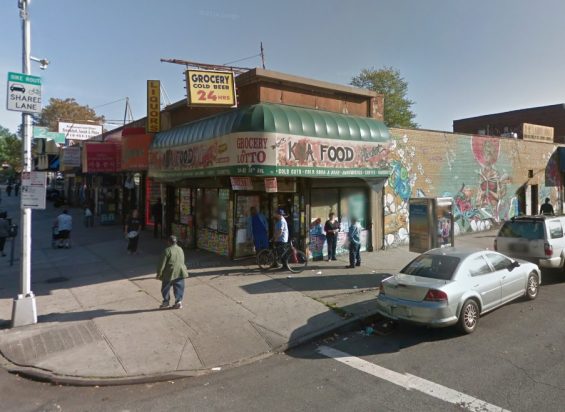Sept. 27, 2017 By Tara Law
A Long Island City bodega that has a history of selling alcohol to minors has lost its license to sell booze, the State Liquor Authority announced Wednesday.
Ali Kasem Al-Awdi, the owner of KNA Food Market at 24-02 34th Avenue, is no longer permitted to sell alcohol at the store following four separate incidences—leading to arrests–where he or his employees sold alcohol to minors in the last eight months.
“This licensee has displayed an alarming indifference to the law and a dangerous pattern of behavior that puts young people within his community at serious risk,” said Christopher R. Riano, counsel to the SLA, in a statement.
The arrests began on Jan. 13, when an NYPD underage agent bought two beers from an employee while Al-Awdi was at the store. The employee was arrested and criminally charged.
Then on March 3 and March 25, Al-Awdi was arrested for selling alcohol to underage agents.
The police discovered that Al-Awdi had three outstanding bench warrants following his March 3 arrest and that he had failed to report his previous arrests to the SLA, thereby violating the license requirement.
KNA Food Market was charged on Sept. 21 with seven violations of the Alcohol and Beverage Control Law, which included four counts of selling to minors and failure to exercise adequate supervision over the premises.
The bodega’s difficulties with the authorities go back years. On Sept. 25, 2013, the SLA fined the market $4,500 for selling to a minor and for selling alcohol through an outside window.
The police have been clamping down on the store and have increased their presence in the area as a means to combat crime at Ravenswood Houses, according to Deputy Inspector Peter Fortune, the former commanding officer for the 114th Precinct.
10 Comments


Ha ha ha ha maaaaaan this is great. Kids like to drink and smoke. It’s good maaaaaaan I like stores like this
So no more nutcrackers for the kids who wanna get smashed on Saturdays anymore? Well played. They lost their license b/c they’re supposed to CARD people for ID, not just sell them to anyone they think they’re over 18.
It’s called common sense for a reason.
I would like to see it closed permanently..need to let the community know that this behavior will not be tolerated..Kudos to the NYPD
I agree. People always standing outside like they own the corner of that store doing there hustling or selling of drugs.
Thats NOT the way I left the neighborhood
Guess it’ back to drinking Listerine for me
This is great news for the community.
Why isn’t the stores closed down? I would have to think there are more illegal dealings going on in that store.
There is a supermarket a few doors away.
Go ahead and get the Mystery Mobile and Scooby Snacks…you have a case to solve!!!
Hey that was the original “John’s Bargain Store”…before they invented the $1 store. Lol!!!
Teens will always be able to alcohol from somewhere but nice job by the cops and follow through by the SLA to make it a little more difficult.
Hopefully the owner can’t incorporate under a different name and continue disrespecting the community.
Jail time would be nice to see and maybe discourage others.